By Michael D. Hull
One day shortly after the Battle of El Guettar in central Tunisia in March 1943, Colonel William O. Darby, commander of the U.S. 1st Ranger Battalion, was summoned by Lt. Gen. George S. Patton, Jr., commander of the U.S. II Corps. Patton had set up his headquarters in a small public building in the dusty town of Gafsa after the furious encounter in which Darby’s Rangers had gallantly supported Maj. Gen. Terry de la Mesa Allen’s 1st Infantry Division in advancing against German panzer forces and their Italian allies. After chatting together about the tactical situation, Patton and Darby stepped out onto the balcony of the building and saw a wiry, bespectacled man clad in Ranger fatigues and a green beret walking along the street.
Patton, who had recently taken a firm grip of the demoralized II Corps and ordered its combat troops to be properly uniformed with helmets, leggings, and even neckties, exclaimed, “What in hell is that?” With a tremor in his voice, the handsome, boyish Colonel Darby replied, “That is our British chaplain, sir, and about the only man I know who can get away with not wearing a helmet.” Patton swallowed quickly and then laughed hilariously.
Darby was referring to Captain Albert E. Basil, a Commando chaplain attached to the British Army’s Special Services Brigade, who had become familiar with the Ranger Battalion in Scotland and had accompanied it—unofficially—to the Mediterranean Sea for Operation Torch, the Allied invasion of North Africa on November 8, 1942.
Devout, scholarly, and good natured, Father Basil endeared himself to Darby and his men and became a legendary figure in Ranger history. For nine months, he marched, bivouacked, and shared foxholes with the elite American infantrymen in North Africa, provided them with spiritual comfort and moral guidance, and was awarded the Silver Star for heroism under fire. He wore a Ranger uniform but insisted on retaining his prized green beret and Commando shoulder patch.
Between Priesthood and the Army
Albert Edward Basil was born in Enfield, Middlesex, on December 19, 1906, into a strict Victorian Anglican family. He spent most of his childhood in Portsmouth, Hampshire, and attended St. Mary’s School in the market town of Basingstoke, Hampshire. He became a diligent scholar with many interests, including scripture and philosophy, and he was a good listener. He had a cheerful personality, was broad minded, and made friends easily.
Young Albert went on to study at Lampeter College in Wales, where he gained a bachelor of arts degree in theology in 1927. His intention was to enter the Anglican ministry, but, being too young to be ordained, he was required to undertake community work. So he became active in youth work in Loughborough, Leicestershire, for two years. Meanwhile, facing a crisis in his beliefs, Albert entered the Roman Catholic Church in December 1928. Mentored by Father Cuthbert Emery of Ratcliffe College, the young man took the name Joseph and decided to pursue his vocation as a religious member of the Institute of Charity (the Rosminian Order) in 1929. After taking vows in 1931, he taught at Ratcliffe for three years.
Basil then went off to Domodossola in northern Italy for theological studies. He was ordained a priest in 1938, became fluent in Italian, and taught in Italian colleges run by the Institute of Charity until the outbreak of World War II. A few days before Fascist dictator Benito Mussolini’s Italy entered the war in June 1940, Father Basil and a fellow British priest were warned to leave the country. Joining a small group of Rosminians, they made their way overland to France. They crossed the English Channel from St. Malo to Southampton a few hours before the Channel ports fell to the advancing German forces. Father Basil next spent a year as assistant at St. Etheldreda’s Church in the London borough of Holborn. He was there during the worst months of the London Blitz.
Slightly built, of medium height, and with horn-rimmed spectacles punctuating a sharp- featured face, Father Basil then enlisted in the Army. In January 1941, the War Office granted him an emergency commission as a fourth-class chaplain for the duration of the war. Stationed in Norfolk, he ministered to battalions of the Leicester and Lincoln Regiments and the Highland Light Infantry.
Assigned to the Commandos
Late in 1941, he was assigned to a newly formed force, the Commandos. As part of Combined Operations and the Special Services Brigade, the Commandos were handpicked Army volunteers whose mission was to make hit-and-run raids against enemy installations on the coasts of northwestern Europe and the Mediterranean. The Commandos had distinguished themselves in the ill-fated Norway campaign of 1940.
Father Basil went to the Commando Training Center at Achnacarry, near Fort William in the bleak, rugged Scottish highlands, and joined No. 4 Commando. In the summer of 1942, the Commandos were joined by a contingent of American troops. They were the men of the newly formed U.S. 1st Ranger Battalion, led by the then Major Darby. Volunteers drawn from the ranks of Maj. Gen. Russell P. Hartle’s 34th Infantry Division then based in Northern Ireland, they were named for Major Robert Rogers’s famed Rangers in the American colonial wars. At Achnacarry, the green Americans underwent the same grueling combat and survival training as the Commandos. Under the direction of burly, ruddy-cheeked Lt. Col. Charles E. Vaughan, a former Guards drill sergeant, the Rangers climbed cliffs, forded streams, hiked across mountains, exercised with logs, learned close combat, and fought simulated battles with live ammunition. Only the toughest survived.
After Darby’s men were posted to Dundee for the final stages of their training, one of the Rangers was accidentally killed while traversing a minefield. The Americans had no chaplain with them, so Father Basil conducted the funeral. Afterward, he asked to see all the Roman Catholics. Colonel Darby was a little disturbed and said to him, “That’s all right for the Catholics, Father, but how about the rest of us poor damned Christians?” Taken aback, the priest remarked, “You mean you want me to speak to the Protestants, as well?” Darby replied, “Yes, Father. You see you’re our only chaplain. As far as we Americans are concerned, you represent the God we worship, no matter what our particular creed may be. So, if you don’t mind, we would appreciate you taking care of all of us.”
Father Basil thought it a strange request but agreed. As long as he was with the Rangers, he would minister to Catholics, Protestants, and Jews. A short time later, Colonel Darby asked Brig. Gen. Robert E. Laycock, legendary leader of the Special Services Brigade, if he would allow Captain Basil to remain with the Rangers until they went into action. He assented. So, Basil stayed with them until “the British Army discovered they had one missing chaplain,” as Darby recalled later.
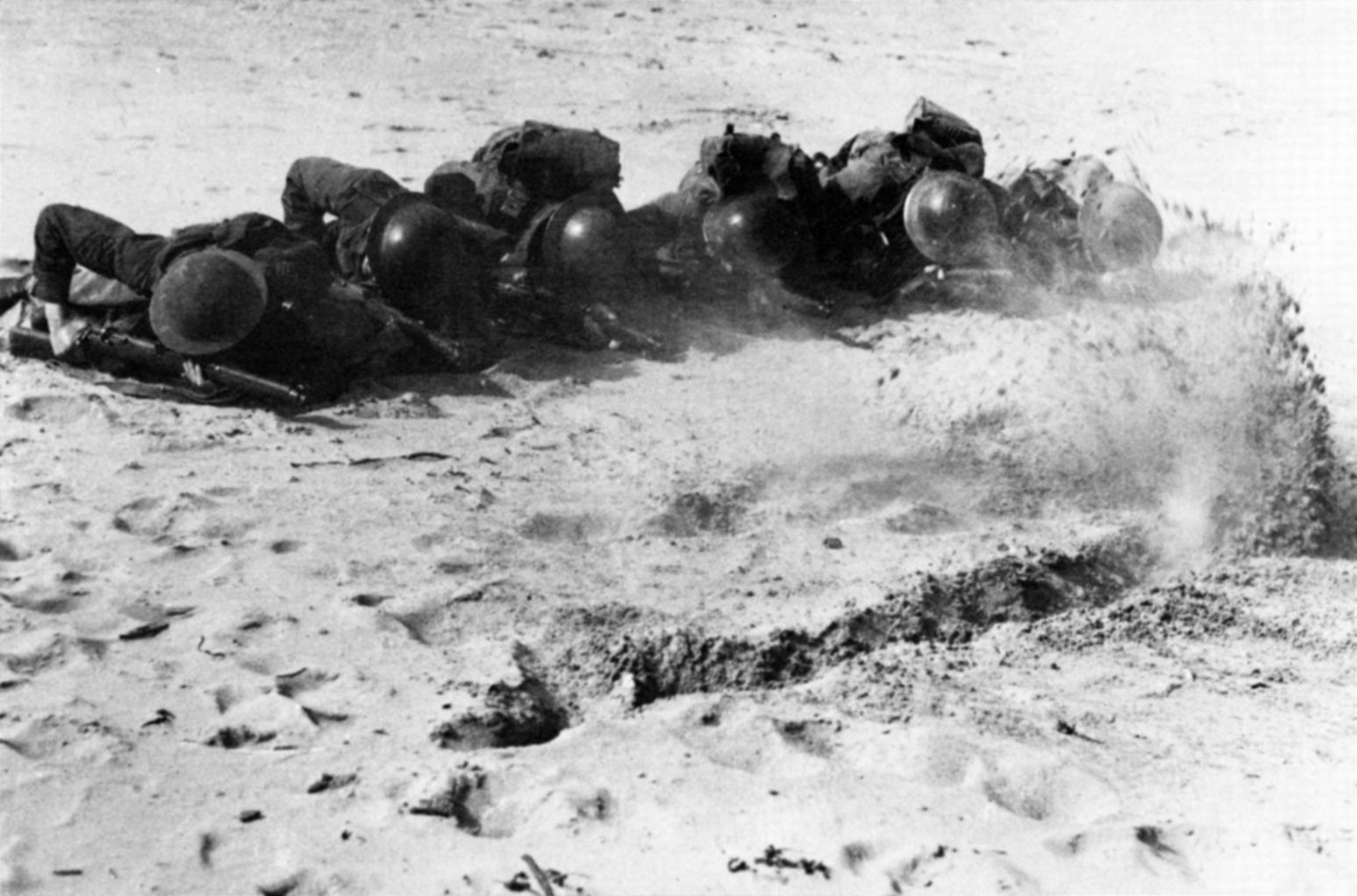
“Cheer Up My Lads, —— ’em all”
The British chaplain wasted no time in making himself and his expanded calling known to all of Darby’s men. One evening, they gathered in their big PX tent to celebrate the arrival of some American beer. They gathered around, raucously singing an old British Army barrack-room ballad known to soldiers everywhere: “Oh, we’re saying goodbye to them all/ The long and the short and the tall/ There’ll be no promotion this side of the ocean/ So cheer up my lads, —— ‘em all.”
The standard word after “lads” was “bless,” but the Rangers were substituting a four-letter word that was also well known to all soldiers. Suddenly, as the chorus after the second stanza was started, a slight, bespectacled figure wearing a green Commando beret stepped up and joined the circle. He came in on the second chorus with a loud voice, drowning out the offending word with: “Bless ‘em all,/ Bless ‘em all,/ The long and the short and the tall ….”
A small silver cross shone brightly on the intruder’s collar, and the boisterous chorus dwindled to a hush. Smiling mischievously, Father Basil said, “Come, Rangers, don’t let me spoil your fun. You sing right well, even though you don’t get all the words right.” One of the Rangers said, “We’re sorry, Chaplain, we were just knocking it around a bit. We really didn’t mean that word like we sang it.” The good priest continued to smile. “You Rangers surely do a grand job of knocking those vulgar words about,” he said. “I have been in camp only four hours, and I have heard language that would make our Liverpool stevedores sound like clergymen.”
Another soldier asked innocently, “Are we that bad, Chaplain?” Basil replied, “Much worse. I had planned to give a service here tomorrow by special request of Colonel Darby. However, I see I will be spending more time here than I expected. There is lots of work for a chaplain here…. Incidentally, my name is Chaplain Albert Basil. I am with the Commando Special Services Brigade. I hope to see you all at the services tomorrow.”
He waved genially, turned, and strode out of the tent, leaving the Rangers embarrassed but comforted to know that a chaplain would be with them for a while. Basil’s services, conducted in a large mess tent, were kept brief and to the point. There were a few Bible readings, a hymn or two, and a homily that was short in length but long in thought.
Father Basil’s First Service
At the first service, Father Basil declared, “Rangers, I thoroughly appreciate those of you who were thoughtful enough to attend services today. I would like to say I am not here to prate and belabor you on the need for faith at this crucial moment. Faith in God is not something to be forced upon you; it is something that must come from within, something you alone must feel. But I do say this: Every man in this unit must face the important decision: Do I go into battle with God at my side, or do I go into battle without Him?
“It is as simple as that. For those of you who wish to go with Him, I am here to help you in any way I can to bring you closer. I am not here to chastise. I am here as a friend who knows and understands soldiers, who knows that strains and stresses of military life can sometimes cause us to doubt, to weaken, to find excuses to indulge in the most profligate adventures when the opportunity presents itself. I came here to say service because there are not enough American chaplains available. I am deeply sorry you do not have your own unit chaplain, because one is certainly needed here.
“With your indulgence, I have elected to stay here with you until you sail…. Please tell your Ranger friends that I want to know them. All of you feel free to come and see me at any hour of the day. Thank you, gentlemen.”
Father Basil won over his new American friends that day. His sermons proved to be only a small part of his pastoral functions. He visited all the Ranger companies and got to know each man personally. He chatted easily with them about their families and home towns, and when they needed spiritual guidance, he invited them to his quarters. Basil celebrated Mass for the Catholics each morning, but he spent the rest of the day seeing men of all faiths. The soldiers came to appreciate his wit, cheerful demeanor, and occasional satire. The mess tent was soon packed for his services.
“A Bona Fide Stowaway”
In October 1942, orders came for Darby’s Rangers to get ready to embark from the port of Glasgow for a major operation, their first taste of action. The destination was secret, but rumors abounded in the ranks: the Pacific, Bordeaux, Marseilles, Dakar, Oran, Sicily…. Father Basil accompanied the battalion to the Glasgow docks, where he sat on a bollard to chat with the soldiers and hear confessions. On October 26, after the equipment-laden Rangers jauntily climbed the gangplank onto one of their three troop ships, HMS Ulster Monarch, the priest was invited on board for a farewell gathering. He was still aboard when the ship sailed.
The Ulster Monarch took position in the rear of a stately convoy of troop ships escorted by Royal Navy battleships, cruisers, destroyers, and a corvette. The rest of Darby’s Rangers were aboard HMS Royal Scotsman and HMS Royal Ulsterman. They were small ships requisitioned from the Glasgow-Belfast ferry run.
On the Ulster Monarch, two Rangers stood near the starboard bow and scanned the Allied armada. They were surprised by a familiar voice behind them. “Have you Rangers got your sea legs yet?” asked Father Basil. The two men turned around, stunned, for they thought he had returned to the Commando depot. “Father Basil,” one exclaimed, “what are you doing here?” Other surprised soldiers crowded around. “Well, lads,” said the padre, “you may consider me a bona fide stowaway. I simply decided that you Rangers needed me and I needed you. In fact, I was a bit jealous that you would be going on this important adventure while I was back in Scotland, so here I am!”
The group was joined by Captain Roy Murray and Lieutenant Walter F. Nye, apparent accomplices to the stowaway caper. Looking sideways at the chaplain, Murray said, “Fellows, now that the padre is here, we don’t have to worry about being torpedoed. We’re under his wings now.”
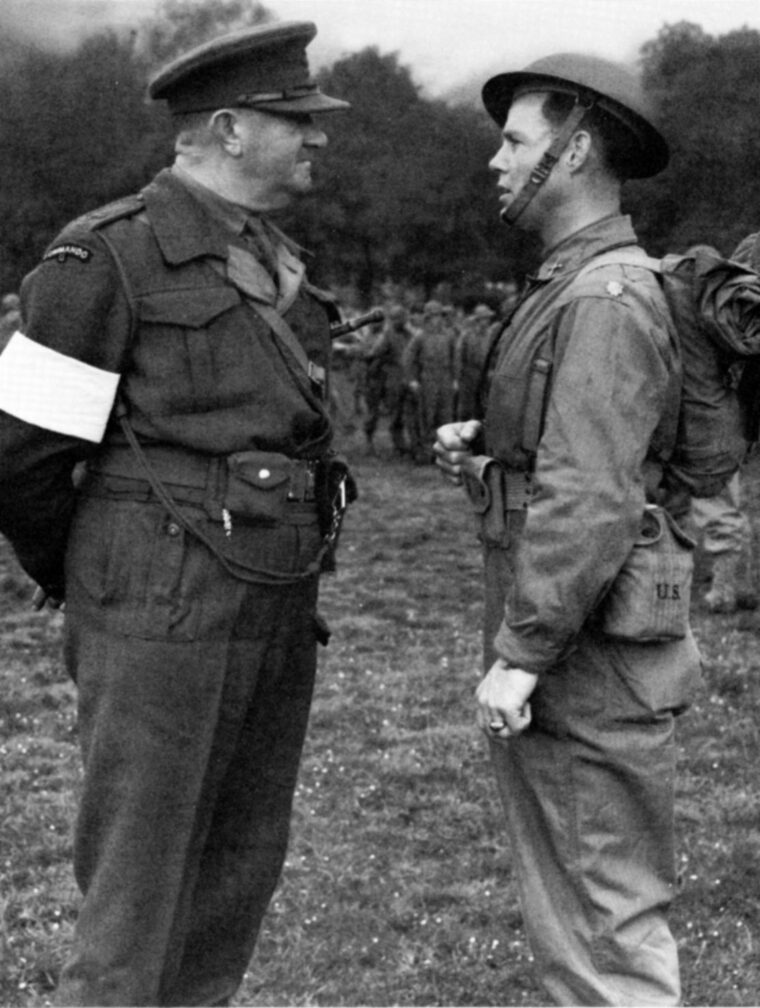
One of the Rangers said, “Sure glad you picked our ship to go AWOL, Padre. That proves we’re the best churchgoers in the battalion.” Flashing his mischievous twinkle, Father Basil replied, “On the contrary, it only proves that Easy and Fox Companies are the best cussers in the entire battalion. I may be a bit ambitious, but I have high hopes that by the time we reach our destination, your vocabularies will have improved remarkably.”
The soldiers all laughed, but the chaplain knew he had a big job ahead. To him, their profanity was one of the worst of human failings. So, the most hardened cussers agreed good naturedly to organize a “Ranger Don’t Swear Club,” whereby each soldier was to drop a shilling fine into a box every time he let a bad word slip out. Father Basil chuckled, “Bully for you, fellows. Now I know my precipitate action in deserting His Majesty’s Army was well justified.”
Landing With the Rangers
The vessels carrying the Rangers were part of the all-American Central Task Force commanded by Maj. Gen. Lloyd R. Fredendall. Its 250 ships carried 35,000 men of the 1st Infantry Division, Maj. Gen. Orlando Ward’s 1st Armored Division, tank destroyer and coast artillery units, and the Rangers. After sailing south and joining up with the British Eastern Task Force and 102 ships of the Western Task Force coming from the United States, the Central Task Force would turn into the Mediterranean and head for its destination, the Algerian port of Oran. D-day for Operation Torch, the invasion of North Africa, was Sunday, November 8, 1942.
The transports carrying the Rangers and the Big Red One Division arrived off Cape Carbon, east of Oran, late on the night of November 7. The mission of Darby’s men was to neutralize Fort du Nord and two Vichy French coastal batteries guarding the port of Arzew in support of the landing of the 1st Infantry Division.
Six miles off Arzew, the Rangers oiled their weapons and adjusted their equipment and Mae West life jackets in the Ulster Monarch’s hold, while their commander checked his trusty Springfield .03 rifle. Father Basil set up an improvised altar on the rear mess deck and ministered to Rangers of all creeds. Lying down fully clothed, Colonel Darby was gathering his thoughts about the coming landing and his men’s baptism by fire when there was a knock on his cabin door. It was a distressed Father Basil. “My name is not on the list to make the initial landing,” he complained.
Attempting to reassure him, Darby replied, “But don’t you see, Chaplain, there is no need to risk your life uselessly. You’ll be of far more benefit tomorrow after the battle is over.” The padre shook his head. “I’m afraid you don’t understand,” he said. “It is most important that I be with the men in battle. Don’t you see that if I could get to one dying soldier and bring him thoughts of God, I’ll be accomplishing my personal mission.”
Darby could not argue and said, “I guess you win, Chaplain. Frankly, I never thought of it that way before. You’ll go in boat number five in my wave.”
Before leaving the ship, a smiling Captain Murray gave the Rangers a few words of encouragement. Father Basil, clad in British Army battle dress and with his only weapons a swagger stick and worn Bible, said, “Gentlemen, I just want you to know how grateful I am to be with my adopted outfit on its first major operation. I know you are going to put on a great show. Each and every one of you has my blessings.”
Christmas on the Beach
Darby split his force, with his executive officer, Major Herman Dammer, leading an assault on the French bastion at sea level in darkness at 1 am. With fixed bayonets and mortar support, the Rangers rushed through openings in the barbed wire and dugouts against token French resistance. The Americans bagged 150 prisoners, including the French commandant, and by noon on November 8, Arzew was officially secure. With the loss of one man killed by a sniper and one wounded, Darby’s men had acquitted themselves well. General Allen reported, “Their initial mission was accomplished with great dash and vigor.”
The Rangers and their chaplain spent Christmas Day 1942 on a strip of Algerian beach. Basil celebrated High Mass for the Catholics early in the morning, and a general service for the entire battalion at 11 am. The resourceful priest, clad now in Ranger garb except for his green beret, had scrounged a small portable organ and a Christmas tree and had organized a choral group. As a hot sun beat down, the bareheaded Rangers formed a big semicircle around their padre and sang “Holy, Holy, Holy” and “O Little Town of Bethlehem.” Colonel Darby said later, “To each Ranger standing there singing, Father Basil was the closest link to home and family and God. Thanks to him, Christmas held for us its true meaning on that hot, sandy ribbon of beach in Algeria.”
Taking Dernaia Pass
The British priest stayed with Darby’s Rangers early in 1943 when they went into action in scrubby, rugged central Tunisia while other American forces suffered initial setbacks and General Bernard L. Montgomery’s British Eighth Army pushed against the formidable German-held Mareth Line in southern Tunisia. After Field Marshal Erwin Rommel’s Afrika Korps had routed the U.S. II Corps at Kasserine Pass and General Patton had replaced Fredendall as commander of the rejuvenated corps, the Americans were ready for their first major offensive in March 1943.
Two enemy panzer divisions and four infantry divisions waited in the mountains east of the palm-fringed oasis of El Guettar, and Patton designated the 1st Infantry Division and the 1st Armored Division to attack. The Rangers were the Big Red One’s spearhead.
Darby’s objective was to open the strategic, funnel-like Dernaia Pass that commanded two important roads. Scrambling for 12 miles across rocks and through fissures and gorges, skirmish lines of black-faced Rangers reached a plateau overlooking firmly entrenched Italian positions on the night of March 21. At dawn, a bugle sounded charge, and the Rangers—yelling Indian calls—surged down on the unsuspecting Italians. With grenades, small-arms fire, and bayonet charges, the Americans overwhelmed the enemy. “Give them some steel!” Darby shouted again and again. Scores of dead Italians soon littered the mountainside, and more than 200 others were captured.
By noon, the Rangers had moved across the pass, knocked out a dozen machine guns and a battery of German 88mm guns, and rounded up hundreds more prisoners. Only one Ranger had been wounded.
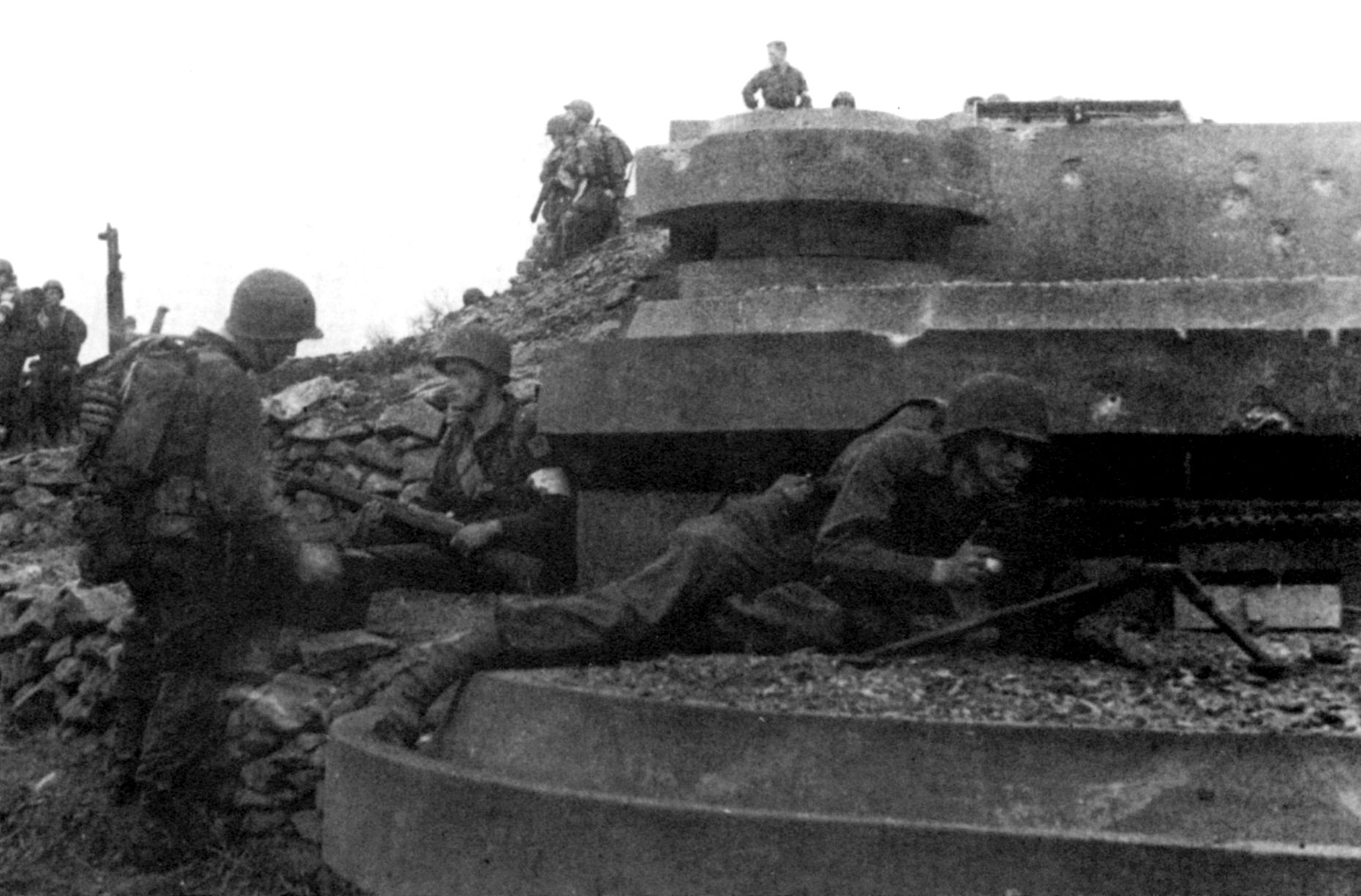
Father Basil’s Silver Star
It was here that Father Basil helped to save many lives, both American and Italian. The prisoners were herded to Colonel Darby’s command post, where the chaplain mingled with them. The Germans had pulled out and left the Italians two days before. Speaking their language fluently, Father Basil convinced the prisoners to call on their comrades to surrender. They did so and, also at his suggestion, lifted mines from in front of their positions. The Rangers took a total of 1,400 prisoners. Basil’s knowledge of Italian was invaluable to the Rangers on many such occasions.
By 2 pm that March 22, Darby was able to radio General Allen and tell him, “You can send in your troops. The pass is cleared.” The way was now open for a juncture of Patton’s II Corps with the Eighth Army. After six days of fighting, Darby’s battalion was withdrawn to Gafsa and placed in division reserve. Darby was awarded the Distinguished Service Cross by General Patton, and his battalion was commended for a Presidential Unit Citation.
Father Basil received the Silver Star. The citation noted his “unusual courage and devotion to duty by his continual presence among the men in forward areas … the inspiration of his personal counsel … and by providing maximum opportunities for worship, he contributed importantly to the battalion’s morale and success of its mission.”
Characteristically, the humble priest made light of having been given the medal. Asked by a reporter after the war how he had won the Silver Star, he replied that he had taken off his helmet to celebrate Mass while those in attendance had kept theirs on.
Returning to the Commandos
Around 10 one morning, Father Basil set up his altar in a wooded draw beside a road near the Dernaia Pass. Halfway through the Mass, German artillery starting pounding the area. The kneeling Rangers watched the bursts come closer and finally hit the dirt. The celebrant was unperturbed. “We less brave Rangers spent some anxious moments during services,” said one soldier, “but Father Basil seemed as unconcerned as if he were back in a parish church.” The closest shell passed over the Rangers’ position, and no one was hurt. Turning to his flock, Father Basil reminded them that the Lord takes care of His own.
It was soon time for the British chaplain to rejoin his own unit, and he and Darby’s men gathered in an olive grove for an emotional farewell shortly before Easter 1943. With his twinkle, Father Basil said, “The grand and glorious alliance of our armies is in jeopardy unless I return. I have stayed away far beyond my legitimate AWOL period. I can’t tell you how sad I am to be leaving you. I will never forget you. I hope you will remember me, and I hope you will remember me best by never taking the Lord’s name in vain.”
There were few dry eyes among the battle- hardened Rangers as he walked toward a waiting British Army truck. “His green Commando beret was the only piece of his British clothing left,” a soldier reported. “The rest of his uniform was now all GI.”
Colonel Darby commented, “During his nine months with the Rangers, he was a constant source of inspiration and comfort to us.”
Father Basil subsequently rejoined the Commandos and was assigned to the 2nd Special Services Brigade at Bari on the Italian Adriatic coast. From 1943 to late 1944, his unit was engaged in raids on German installations in Greece, Albania, the Balkans, and Corfu. While in Corfu, Basil contracted malaria. He was then posted as chaplain to the British garrison in Naples. Besides the Silver Star, his decorations included the Polish Silver Cross of Merit. He was demobilized in 1946. When he picked up a special-order black suit from the Army clothing depot in the garrison town of Aldershot, Hampshire, the storeman insisted that Father Basil be issued a regular necktie “to keep the store records straight.”
Back to Civilian Life
The Rosminian priest returned to St. Etheldreda’s Church in Holborn and stayed there until 1948. He then spent some years preaching missions and retreats around the country and was appointed chaplain to the Loughborough College of Technology. When the school was established as a university, Basil became its first Roman Catholic chaplain. He retired in 1976 and then joined the staff of Ratcliffe University. He was appointed a senior member of the Rosminian Order in 1982.
In 1988, Father Basil returned to St. Etheldreda’s Church to deliver the second half of a homily he had begun in 1941 on the Sunday before he joined the Army. The theme of both halves was forgiveness. He recalled that on the earlier occasion he had asked his parishioners, who had endured many months of German bombing, to forgive and not to hate the Luftwaffe pilots.
While preaching, teaching, and in retirement, Father Basil kept in touch with his Ranger friends. He was an honored guest at the biennial reunions of the Ranger Battalions Association in the United States. When his health failed, a group of Darby’s veterans flew to England to celebrate with their wartime true shepherd. Father Basil retired to the St. Mary’s Derryswood convalescent home in Wonersh, Surrey, and died at the Royal Surrey Hospital in nearby Guildford on February 5, 1992.
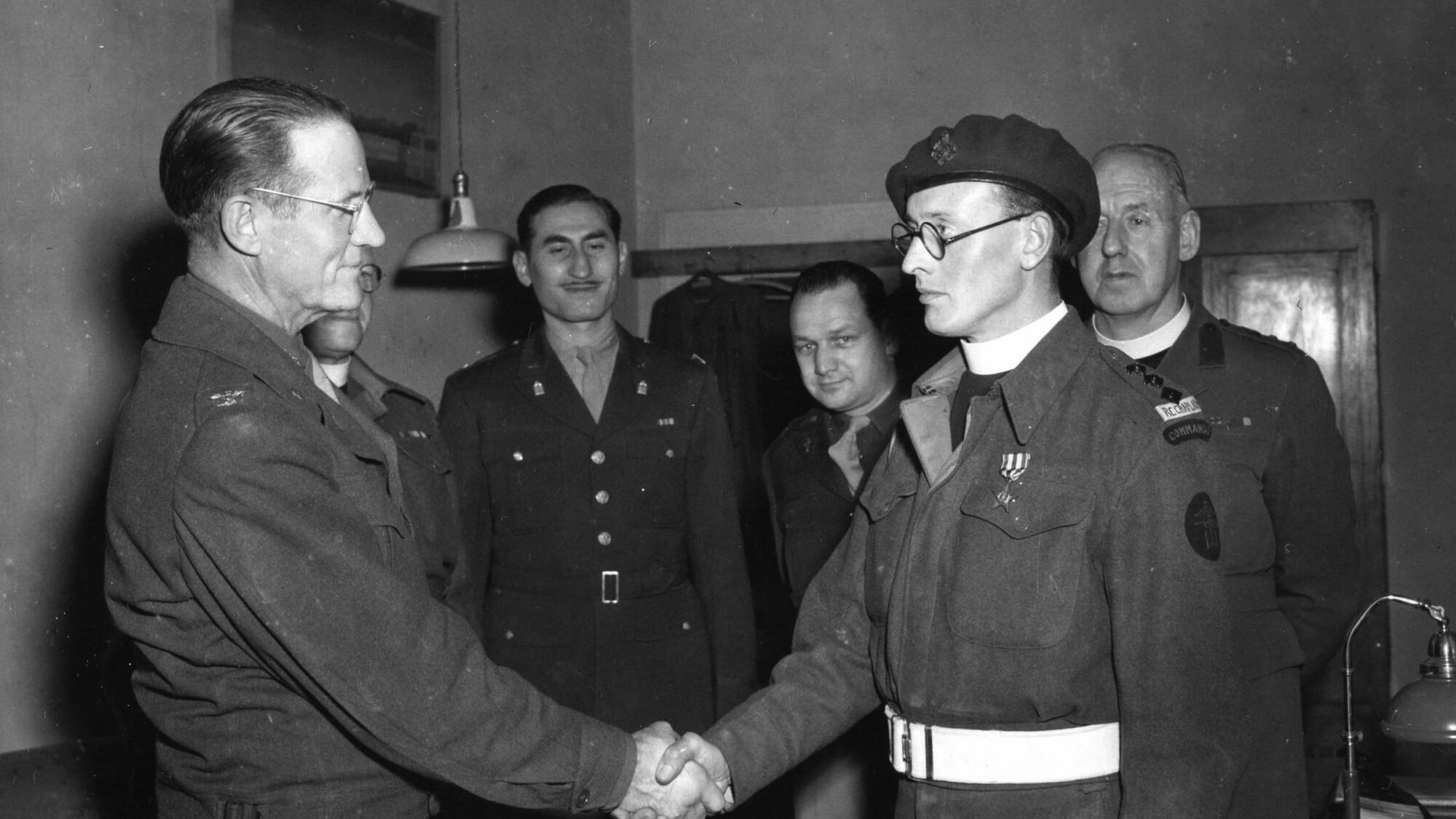
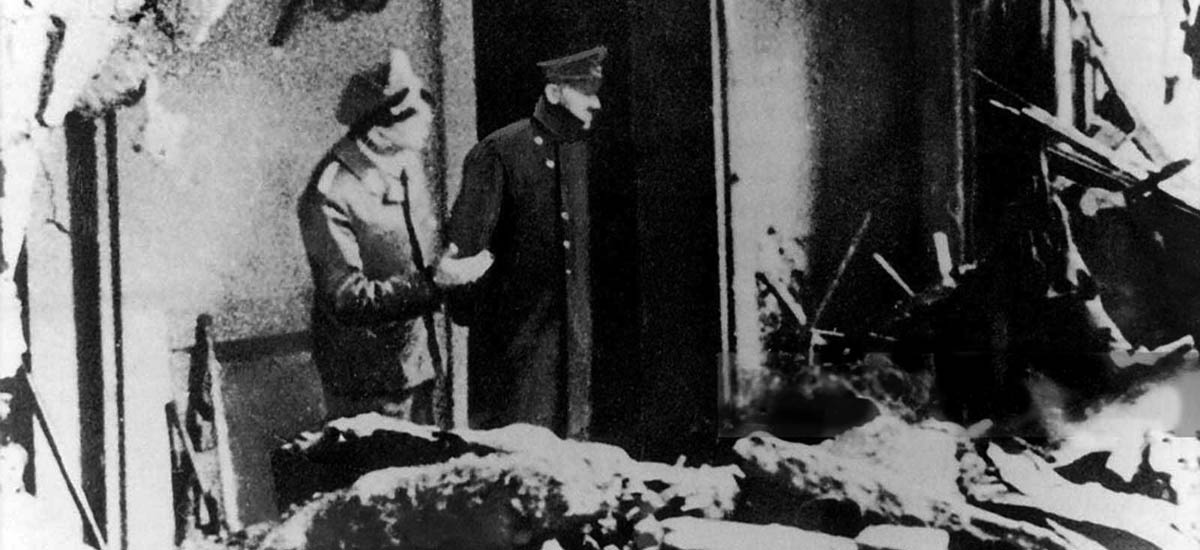
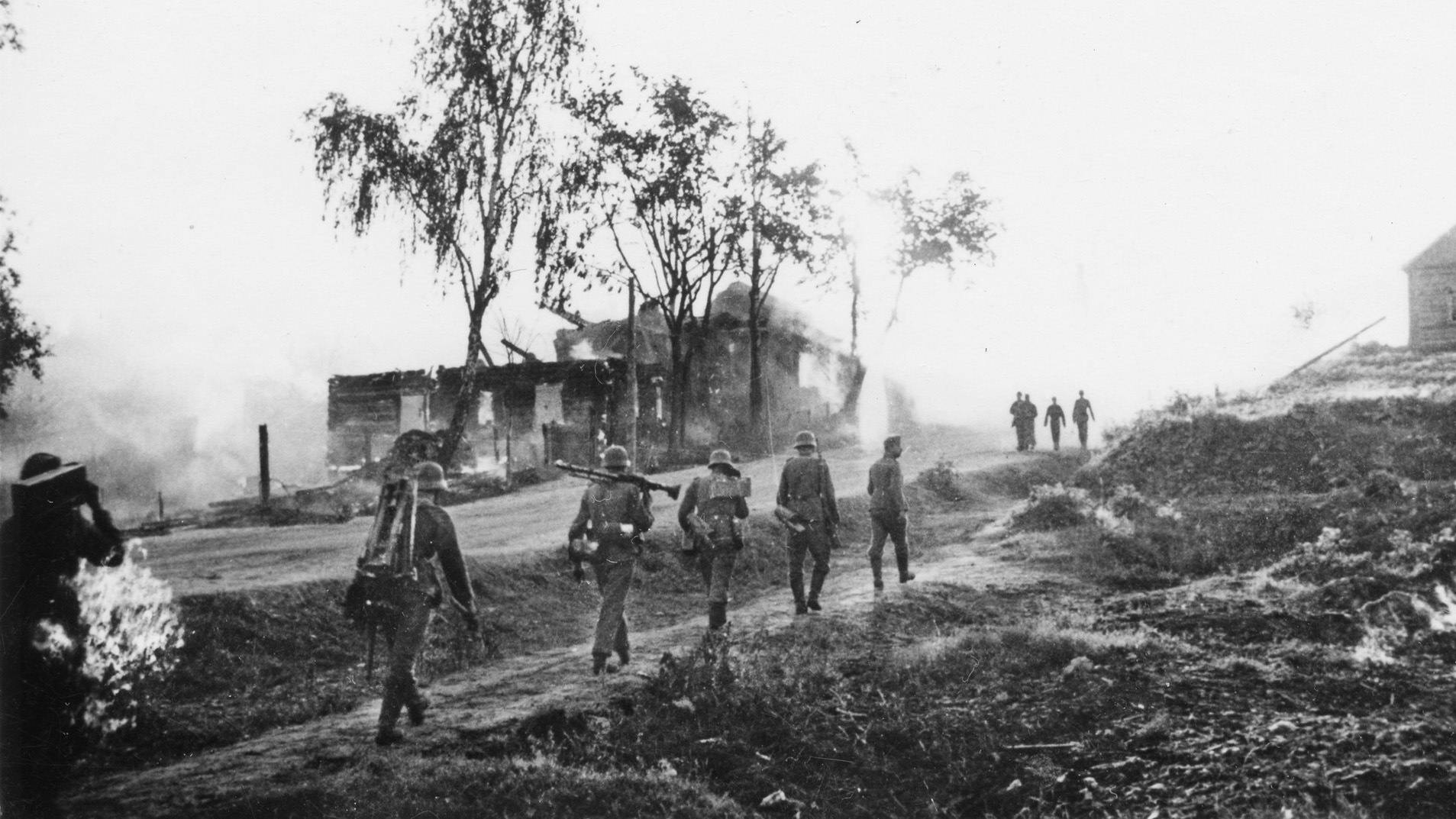
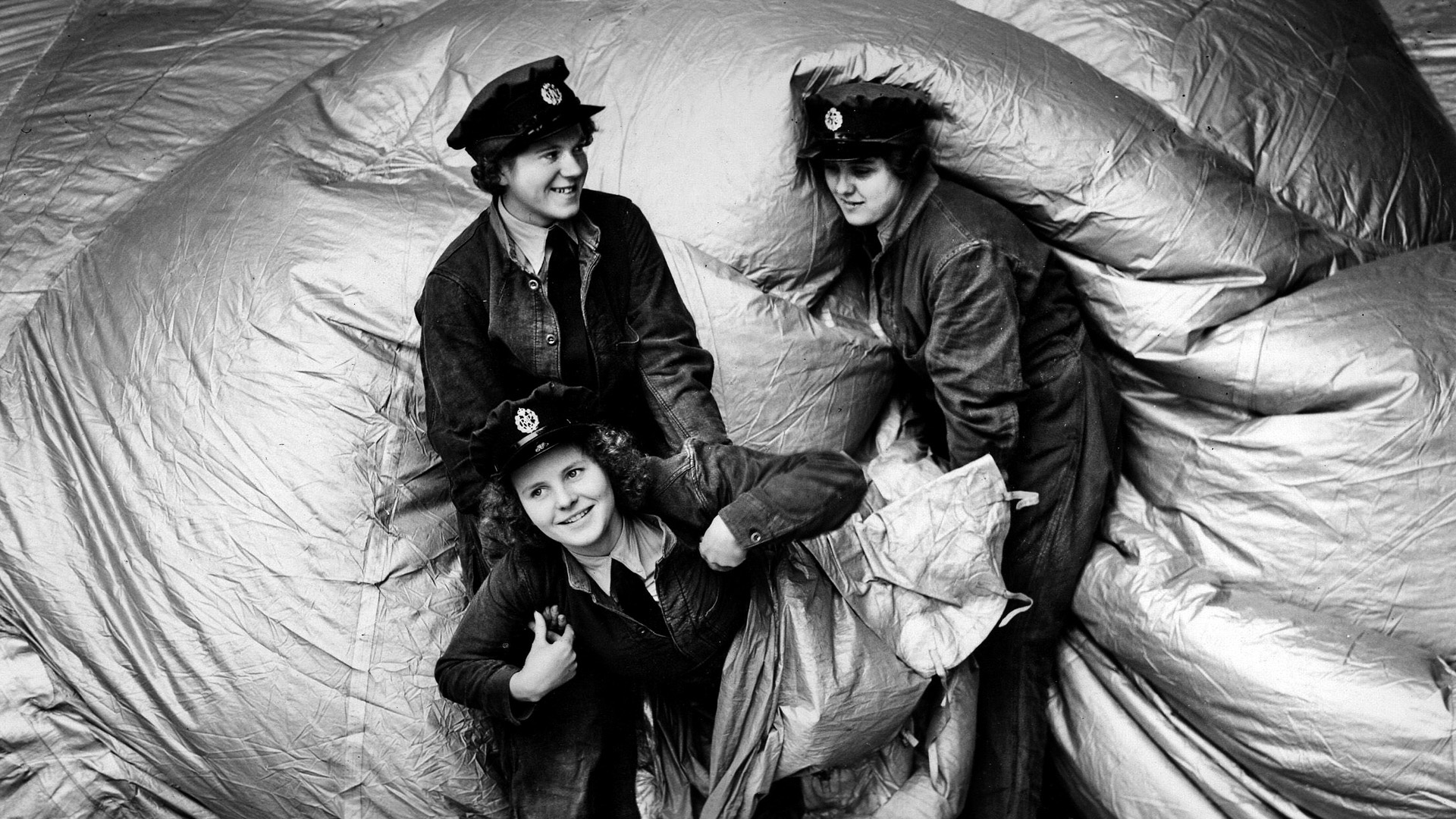
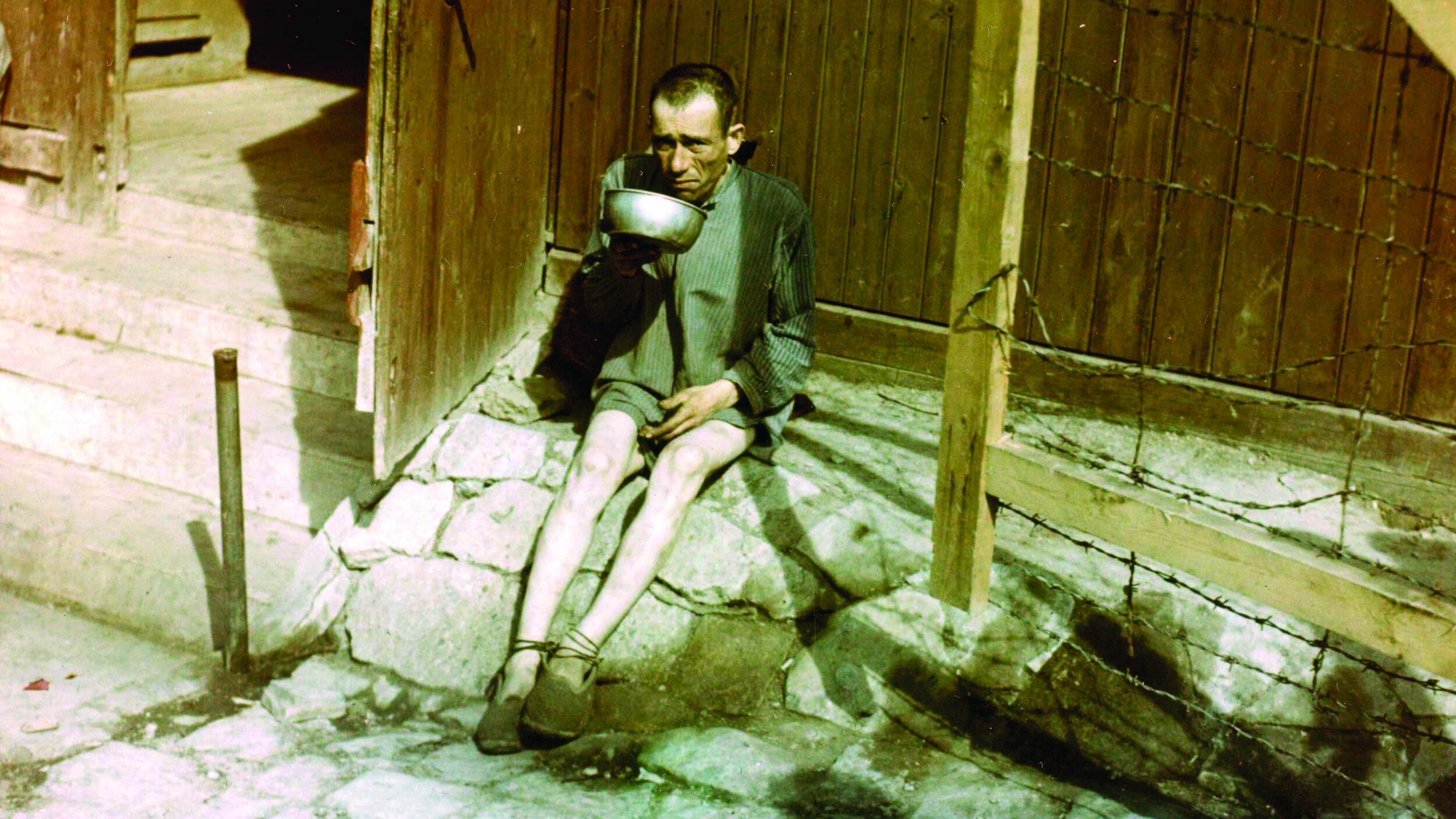
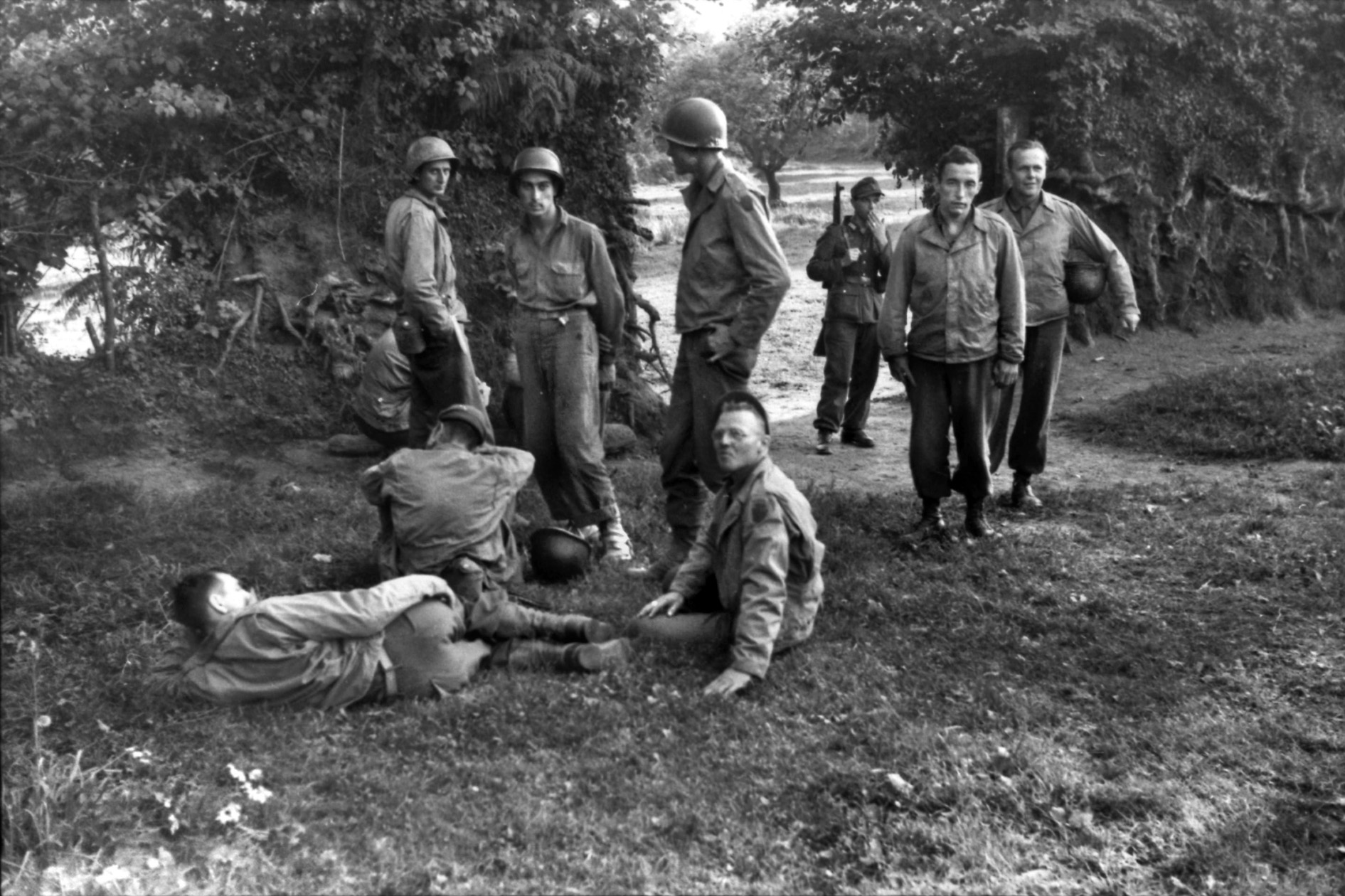
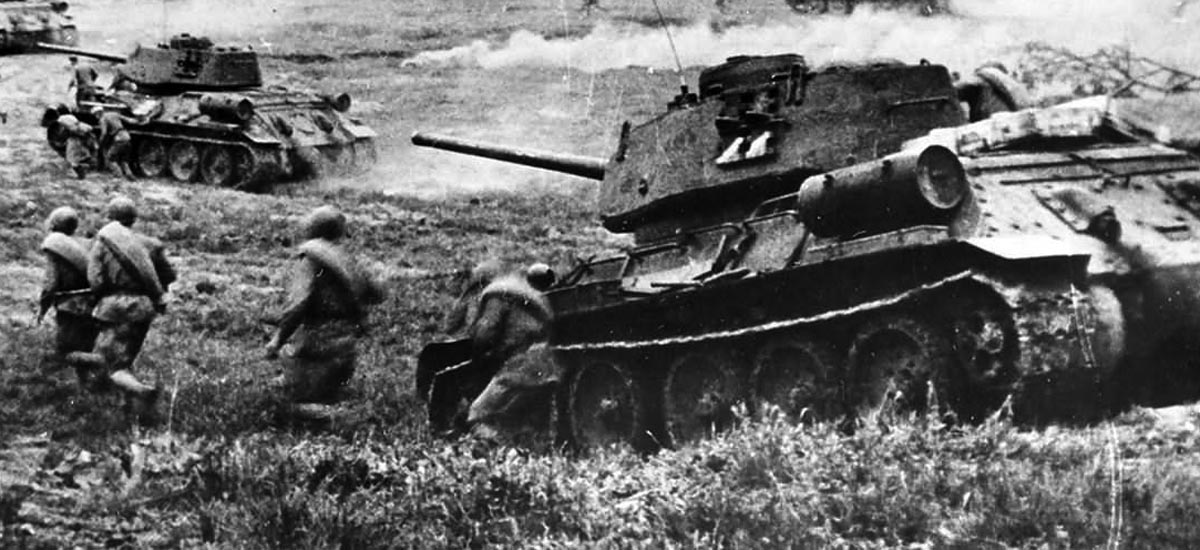
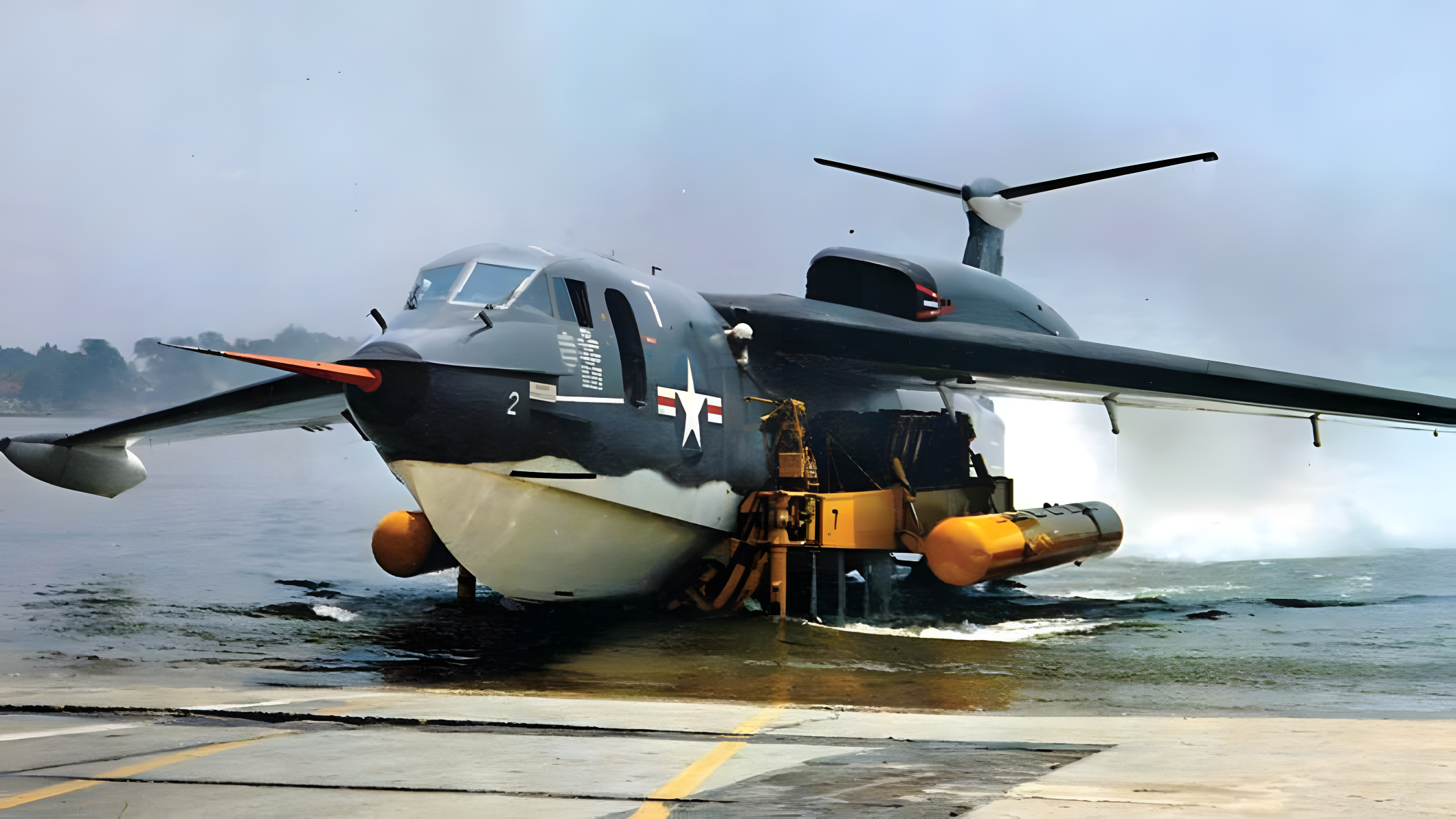
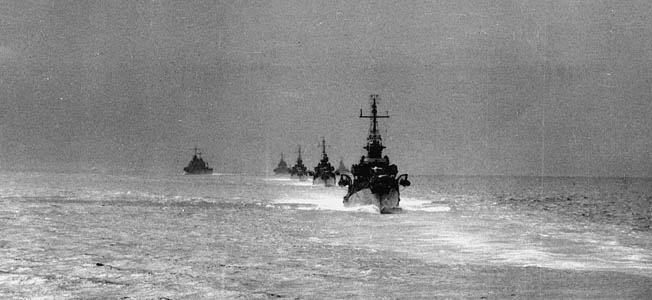
Join The Conversation
Comments
View All Comments